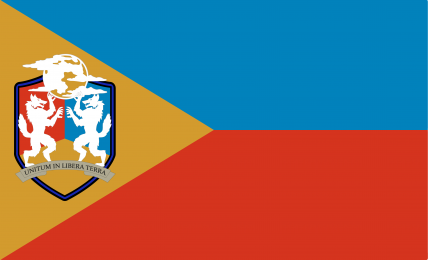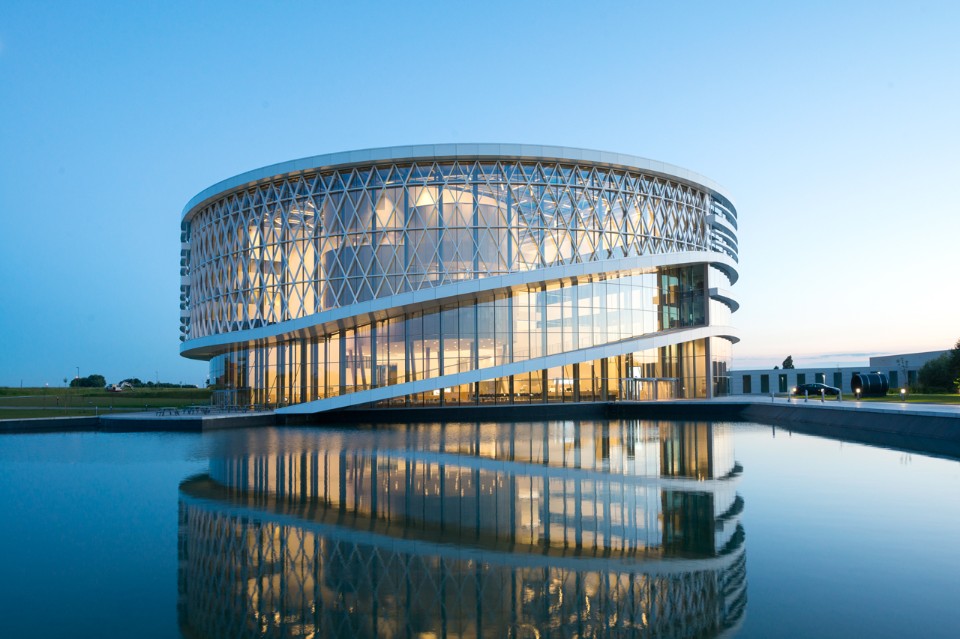
Advertisement

![]() by New Wolvers » Thu Mar 21, 2019 6:26 pm
by New Wolvers » Thu Mar 21, 2019 6:26 pm

![]() by Scramany » Thu Mar 21, 2019 6:28 pm
by Scramany » Thu Mar 21, 2019 6:28 pm
Smallson wrote:Does your nation have a Coast Guard?
Is it Civillian? Or is it a Paramilitary/Military Agency?
How many ships does it operate?
What duties does it exercise?
What is it's Military Capacity?
What Ministry or Department operates it?
Is it a Nationalized force, or a regional Force?

![]() by Gran Toreno » Thu Mar 21, 2019 11:40 pm
by Gran Toreno » Thu Mar 21, 2019 11:40 pm

![]() by Bruke » Thu Mar 21, 2019 11:42 pm
by Bruke » Thu Mar 21, 2019 11:42 pm
Gran Toreno wrote:So, of course with many people of different types of Nations RPing with each other, and with many Nations going to "War" how do you think all the Nations are connected? Do you think every Nation on Nationstates in on one giant Planet, do you think there are ripples in Dimensions, etc.
Share what you honestly think is the connection.

![]() by Gran Toreno » Thu Mar 21, 2019 11:50 pm
by Gran Toreno » Thu Mar 21, 2019 11:50 pm
Bruke wrote:Gran Toreno wrote:So, of course with many people of different types of Nations RPing with each other, and with many Nations going to "War" how do you think all the Nations are connected? Do you think every Nation on Nationstates in on one giant Planet, do you think there are ripples in Dimensions, etc.
Share what you honestly think is the connection.
It has to be dimensions, there are too many inconsistent histories, territorial claims, etc. for every nation to be on one planet. Plus some nations are space-based, so they span multiple planets.

![]() by Silver Commonwealth » Fri Mar 22, 2019 3:29 am
by Silver Commonwealth » Fri Mar 22, 2019 3:29 am
✥ ᴛʜᴇ ɴᴇᴡꜱ ✥
- ꜱɴɴ
- ᴀʀᴄʜɪᴠᴇ
✉ ʀᴀɴᴅᴏᴍ ✉
- ᴀᴅᴍɪɴɪꜱᴛʀᴀᴛɪᴏɴ
- ꜱᴛᴏʀɪᴇꜱ
✪ ʟᴇᴀᴅᴇʀꜱʜɪᴘ ✪
- ᴘʀᴇꜱɪᴅᴇɴᴛ ᴛᴏᴍ
- ᴏᴛʜᴇʀ ʟᴇᴀᴅᴇʀꜱ
≛ ᴘᴇᴏᴘʟᴇ ≛
- ꜱᴏᴄɪᴇᴛʏ
- ꜱᴛᴜꜰꜰ&ɢᴏᴏᴅꜱ
⚒ ᴛʜᴇ ɴᴀᴛɪᴏɴᴀʟ ᴡᴏʀʟᴅ ʀᴇᴘᴜʙʟɪᴄ ᴏꜰ ꜱɪʟᴠᴇʀ ᴄᴏᴍᴍᴏɴᴡᴇᴀʟᴛʜ ⚒
|☐ʜᴏᴍᴇ☐|❖ꜱᴄ ɪɴ ʜᴏɪ4❖|★ꜱᴄ'ꜱ ʀᴀᴅɪᴏ&ʟᴏᴄᴀᴛɪᴏɴꜱ★|❇ᴄᴏɴꜱᴛɪᴛᴜᴛɪᴏɴ❇|✧ᴍɪʟɪᴛᴀʀʏ✧|✝ᴍᴀᴘꜱ&ɪɴꜰᴏ✝|☢ʜɪꜱᴛᴏʀʏ☢|
⚖ ᴀꜱ ᴛʜᴇ ᴍᴏᴅᴇʀᴀᴛᴇꜱ ᴀʀᴏᴜɴᴅ ᴛʜᴇᴍ ꜰᴇʟʟ, ʀᴀᴅɪᴄᴀʟɪᴢᴀᴛɪᴏɴ ᴏꜰ ꜱᴄ'ꜱ ᴅᴇᴍᴏᴄʀᴀᴄʏ ꜱᴜᴘᴘᴏʀᴛᴇʀꜱ ʙᴇᴄᴀᴍᴇ ᴀ ᴍᴀᴛᴛᴇʀ ᴏꜰ ꜱᴜʀᴠɪᴠᴀʟ ☠

![]() by Ngaalxa » Fri Mar 22, 2019 5:22 am
by Ngaalxa » Fri Mar 22, 2019 5:22 am

![]() by New Wolvers » Fri Mar 22, 2019 9:52 am
by New Wolvers » Fri Mar 22, 2019 9:52 am

![]() by Fatatatutti » Fri Mar 22, 2019 10:05 am
by Fatatatutti » Fri Mar 22, 2019 10:05 am

![]() by Revolucionario Cuba » Fri Mar 22, 2019 10:06 am
by Revolucionario Cuba » Fri Mar 22, 2019 10:06 am
Fatatatutti wrote:The way Fatatatutians look at it (IC and OOC being pretty much the same in Fatatatutti) other nations may be deluded into thinking they're intergalactic empires, etc. but they're really not.

![]() by Christ Triumphant » Fri Mar 22, 2019 10:11 am
by Christ Triumphant » Fri Mar 22, 2019 10:11 am

![]() by VoVoDoCo » Fri Mar 22, 2019 10:19 am
by VoVoDoCo » Fri Mar 22, 2019 10:19 am

![]() by LiberNovusAmericae » Fri Mar 22, 2019 10:22 am
by LiberNovusAmericae » Fri Mar 22, 2019 10:22 am
VoVoDoCo wrote:Our Nations must span over multiple planets and multiple universes.

![]() by Christian Confederation » Fri Mar 22, 2019 10:23 am
by Christian Confederation » Fri Mar 22, 2019 10:23 am
Bruke wrote:Gran Toreno wrote:So, of course with many people of different types of Nations RPing with each other, and with many Nations going to "War" how do you think all the Nations are connected? Do you think every Nation on Nationstates in on one giant Planet, do you think there are ripples in Dimensions, etc.
Share what you honestly think is the connection.
It has to be dimensions, there are too many inconsistent histories, territorial claims, etc. for every nation to be on one planet. Plus some nations are space-based, so they span multiple planets.

![]() by Wawakanatote » Fri Mar 22, 2019 10:40 am
by Wawakanatote » Fri Mar 22, 2019 10:40 am
OOC Factbook
Pro: Marxism-Leninism
Anti: Capitalism, Fascism
We do not exist under communism, but under the
primary stage of socialist development (nep/state capitalism)
Please adjust accordingly
Full Nation Name: Supranational Union of Socialist Republics
Government: Federal Intergovernmental P&E Union
Political Leaders: C.Song Liyuan, V.C.Lev Bronshtein
National Anthem: "Hymn of the Union"

![]() by Kenowa » Fri Mar 22, 2019 11:32 am
by Kenowa » Fri Mar 22, 2019 11:32 am

![]() by Silver Commonwealth » Sat Mar 23, 2019 1:32 am
by Silver Commonwealth » Sat Mar 23, 2019 1:32 am
✥ ᴛʜᴇ ɴᴇᴡꜱ ✥
- ꜱɴɴ
- ᴀʀᴄʜɪᴠᴇ
✉ ʀᴀɴᴅᴏᴍ ✉
- ᴀᴅᴍɪɴɪꜱᴛʀᴀᴛɪᴏɴ
- ꜱᴛᴏʀɪᴇꜱ
✪ ʟᴇᴀᴅᴇʀꜱʜɪᴘ ✪
- ᴘʀᴇꜱɪᴅᴇɴᴛ ᴛᴏᴍ
- ᴏᴛʜᴇʀ ʟᴇᴀᴅᴇʀꜱ
≛ ᴘᴇᴏᴘʟᴇ ≛
- ꜱᴏᴄɪᴇᴛʏ
- ꜱᴛᴜꜰꜰ&ɢᴏᴏᴅꜱ
⚒ ᴛʜᴇ ɴᴀᴛɪᴏɴᴀʟ ᴡᴏʀʟᴅ ʀᴇᴘᴜʙʟɪᴄ ᴏꜰ ꜱɪʟᴠᴇʀ ᴄᴏᴍᴍᴏɴᴡᴇᴀʟᴛʜ ⚒
|☐ʜᴏᴍᴇ☐|❖ꜱᴄ ɪɴ ʜᴏɪ4❖|★ꜱᴄ'ꜱ ʀᴀᴅɪᴏ&ʟᴏᴄᴀᴛɪᴏɴꜱ★|❇ᴄᴏɴꜱᴛɪᴛᴜᴛɪᴏɴ❇|✧ᴍɪʟɪᴛᴀʀʏ✧|✝ᴍᴀᴘꜱ&ɪɴꜰᴏ✝|☢ʜɪꜱᴛᴏʀʏ☢|
⚖ ᴀꜱ ᴛʜᴇ ᴍᴏᴅᴇʀᴀᴛᴇꜱ ᴀʀᴏᴜɴᴅ ᴛʜᴇᴍ ꜰᴇʟʟ, ʀᴀᴅɪᴄᴀʟɪᴢᴀᴛɪᴏɴ ᴏꜰ ꜱᴄ'ꜱ ᴅᴇᴍᴏᴄʀᴀᴄʏ ꜱᴜᴘᴘᴏʀᴛᴇʀꜱ ʙᴇᴄᴀᴍᴇ ᴀ ᴍᴀᴛᴛᴇʀ ᴏꜰ ꜱᴜʀᴠɪᴠᴀʟ ☠

![]() by New Udonia » Sat Mar 23, 2019 5:39 am
by New Udonia » Sat Mar 23, 2019 5:39 am



![]() by Ru- » Sat Mar 23, 2019 2:44 pm
by Ru- » Sat Mar 23, 2019 2:44 pm
Gran Toreno wrote:So, of course with many people of different types of Nations RPing with each other, and with many Nations going to "War" how do you think all the Nations are connected? Do you think every Nation on Nationstates in on one giant Planet, do you think there are ripples in Dimensions, etc.
Share what you honestly think is the connection.
OP Note: I legit spent a good 30 Minutes figuring out how to word this in a coherent way without making it confusing.

![]() by Welskerland » Sat Mar 23, 2019 3:28 pm
by Welskerland » Sat Mar 23, 2019 3:28 pm
Gran Toreno wrote:So, of course with many people of different types of Nations RPing with each other, and with many Nations going to "War" how do you think all the Nations are connected? Do you think every Nation on Nationstates in on one giant Planet, do you think there are ripples in Dimensions, etc.
Share what you honestly think is the connection.
OP Note: I legit spent a good 30 Minutes figuring out how to word this in a coherent way without making it confusing.

![]() by Silver Commonwealth » Mon Mar 25, 2019 3:41 am
by Silver Commonwealth » Mon Mar 25, 2019 3:41 am
✥ ᴛʜᴇ ɴᴇᴡꜱ ✥
- ꜱɴɴ
- ᴀʀᴄʜɪᴠᴇ
✉ ʀᴀɴᴅᴏᴍ ✉
- ᴀᴅᴍɪɴɪꜱᴛʀᴀᴛɪᴏɴ
- ꜱᴛᴏʀɪᴇꜱ
✪ ʟᴇᴀᴅᴇʀꜱʜɪᴘ ✪
- ᴘʀᴇꜱɪᴅᴇɴᴛ ᴛᴏᴍ
- ᴏᴛʜᴇʀ ʟᴇᴀᴅᴇʀꜱ
≛ ᴘᴇᴏᴘʟᴇ ≛
- ꜱᴏᴄɪᴇᴛʏ
- ꜱᴛᴜꜰꜰ&ɢᴏᴏᴅꜱ
⚒ ᴛʜᴇ ɴᴀᴛɪᴏɴᴀʟ ᴡᴏʀʟᴅ ʀᴇᴘᴜʙʟɪᴄ ᴏꜰ ꜱɪʟᴠᴇʀ ᴄᴏᴍᴍᴏɴᴡᴇᴀʟᴛʜ ⚒
|☐ʜᴏᴍᴇ☐|❖ꜱᴄ ɪɴ ʜᴏɪ4❖|★ꜱᴄ'ꜱ ʀᴀᴅɪᴏ&ʟᴏᴄᴀᴛɪᴏɴꜱ★|❇ᴄᴏɴꜱᴛɪᴛᴜᴛɪᴏɴ❇|✧ᴍɪʟɪᴛᴀʀʏ✧|✝ᴍᴀᴘꜱ&ɪɴꜰᴏ✝|☢ʜɪꜱᴛᴏʀʏ☢|
⚖ ᴀꜱ ᴛʜᴇ ᴍᴏᴅᴇʀᴀᴛᴇꜱ ᴀʀᴏᴜɴᴅ ᴛʜᴇᴍ ꜰᴇʟʟ, ʀᴀᴅɪᴄᴀʟɪᴢᴀᴛɪᴏɴ ᴏꜰ ꜱᴄ'ꜱ ᴅᴇᴍᴏᴄʀᴀᴄʏ ꜱᴜᴘᴘᴏʀᴛᴇʀꜱ ʙᴇᴄᴀᴍᴇ ᴀ ᴍᴀᴛᴛᴇʀ ᴏꜰ ꜱᴜʀᴠɪᴠᴀʟ ☠

![]() by Silver Commonwealth » Mon Mar 25, 2019 3:45 am
by Silver Commonwealth » Mon Mar 25, 2019 3:45 am
✥ ᴛʜᴇ ɴᴇᴡꜱ ✥
- ꜱɴɴ
- ᴀʀᴄʜɪᴠᴇ
✉ ʀᴀɴᴅᴏᴍ ✉
- ᴀᴅᴍɪɴɪꜱᴛʀᴀᴛɪᴏɴ
- ꜱᴛᴏʀɪᴇꜱ
✪ ʟᴇᴀᴅᴇʀꜱʜɪᴘ ✪
- ᴘʀᴇꜱɪᴅᴇɴᴛ ᴛᴏᴍ
- ᴏᴛʜᴇʀ ʟᴇᴀᴅᴇʀꜱ
≛ ᴘᴇᴏᴘʟᴇ ≛
- ꜱᴏᴄɪᴇᴛʏ
- ꜱᴛᴜꜰꜰ&ɢᴏᴏᴅꜱ
⚒ ᴛʜᴇ ɴᴀᴛɪᴏɴᴀʟ ᴡᴏʀʟᴅ ʀᴇᴘᴜʙʟɪᴄ ᴏꜰ ꜱɪʟᴠᴇʀ ᴄᴏᴍᴍᴏɴᴡᴇᴀʟᴛʜ ⚒
|☐ʜᴏᴍᴇ☐|❖ꜱᴄ ɪɴ ʜᴏɪ4❖|★ꜱᴄ'ꜱ ʀᴀᴅɪᴏ&ʟᴏᴄᴀᴛɪᴏɴꜱ★|❇ᴄᴏɴꜱᴛɪᴛᴜᴛɪᴏɴ❇|✧ᴍɪʟɪᴛᴀʀʏ✧|✝ᴍᴀᴘꜱ&ɪɴꜰᴏ✝|☢ʜɪꜱᴛᴏʀʏ☢|
⚖ ᴀꜱ ᴛʜᴇ ᴍᴏᴅᴇʀᴀᴛᴇꜱ ᴀʀᴏᴜɴᴅ ᴛʜᴇᴍ ꜰᴇʟʟ, ʀᴀᴅɪᴄᴀʟɪᴢᴀᴛɪᴏɴ ᴏꜰ ꜱᴄ'ꜱ ᴅᴇᴍᴏᴄʀᴀᴄʏ ꜱᴜᴘᴘᴏʀᴛᴇʀꜱ ʙᴇᴄᴀᴍᴇ ᴀ ᴍᴀᴛᴛᴇʀ ᴏꜰ ꜱᴜʀᴠɪᴠᴀʟ ☠

![]() by Silver Commonwealth » Mon Mar 25, 2019 3:48 am
by Silver Commonwealth » Mon Mar 25, 2019 3:48 am
✥ ᴛʜᴇ ɴᴇᴡꜱ ✥
- ꜱɴɴ
- ᴀʀᴄʜɪᴠᴇ
✉ ʀᴀɴᴅᴏᴍ ✉
- ᴀᴅᴍɪɴɪꜱᴛʀᴀᴛɪᴏɴ
- ꜱᴛᴏʀɪᴇꜱ
✪ ʟᴇᴀᴅᴇʀꜱʜɪᴘ ✪
- ᴘʀᴇꜱɪᴅᴇɴᴛ ᴛᴏᴍ
- ᴏᴛʜᴇʀ ʟᴇᴀᴅᴇʀꜱ
≛ ᴘᴇᴏᴘʟᴇ ≛
- ꜱᴏᴄɪᴇᴛʏ
- ꜱᴛᴜꜰꜰ&ɢᴏᴏᴅꜱ
⚒ ᴛʜᴇ ɴᴀᴛɪᴏɴᴀʟ ᴡᴏʀʟᴅ ʀᴇᴘᴜʙʟɪᴄ ᴏꜰ ꜱɪʟᴠᴇʀ ᴄᴏᴍᴍᴏɴᴡᴇᴀʟᴛʜ ⚒
|☐ʜᴏᴍᴇ☐|❖ꜱᴄ ɪɴ ʜᴏɪ4❖|★ꜱᴄ'ꜱ ʀᴀᴅɪᴏ&ʟᴏᴄᴀᴛɪᴏɴꜱ★|❇ᴄᴏɴꜱᴛɪᴛᴜᴛɪᴏɴ❇|✧ᴍɪʟɪᴛᴀʀʏ✧|✝ᴍᴀᴘꜱ&ɪɴꜰᴏ✝|☢ʜɪꜱᴛᴏʀʏ☢|
⚖ ᴀꜱ ᴛʜᴇ ᴍᴏᴅᴇʀᴀᴛᴇꜱ ᴀʀᴏᴜɴᴅ ᴛʜᴇᴍ ꜰᴇʟʟ, ʀᴀᴅɪᴄᴀʟɪᴢᴀᴛɪᴏɴ ᴏꜰ ꜱᴄ'ꜱ ᴅᴇᴍᴏᴄʀᴀᴄʏ ꜱᴜᴘᴘᴏʀᴛᴇʀꜱ ʙᴇᴄᴀᴍᴇ ᴀ ᴍᴀᴛᴛᴇʀ ᴏꜰ ꜱᴜʀᴠɪᴠᴀʟ ☠

![]() by Necroviribus » Wed Mar 27, 2019 6:28 pm
by Necroviribus » Wed Mar 27, 2019 6:28 pm
[size=200]National Animal[/size]
[b]What's your nation's national animal?[/b]
[b]Is it a mammal, a reptile, a bird, or what?[/b]
[b]Is it in the real world?[/b]
[b]Is it allowed to be hunted?[/b]
[b]It it near, at, or surpassing human intelligence?[/b]
[b]What does it's flesh taste like?[/b]
[b]How endangered is it?[/b]
[b]Is it magical?[/b]
[b]How was it created? By magic, technology, evolution, or by a god/goddess?
[b]Is it allowed to be used as a pet?
[b]Where does it live?[/b]
[b]If one were to kill someone, what would people do to it?[/b]
[b]What are expensive resources you can get from it?[/b]
![]() by New Udonia » Thu Mar 28, 2019 4:04 am
by New Udonia » Thu Mar 28, 2019 4:04 am
Advertisement
Return to Factbooks and National Information
Users browsing this forum: Aeyariss
Advertisement